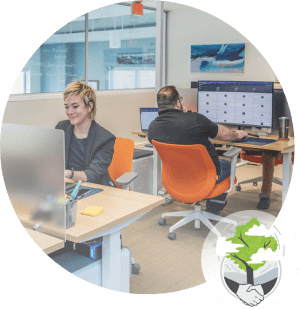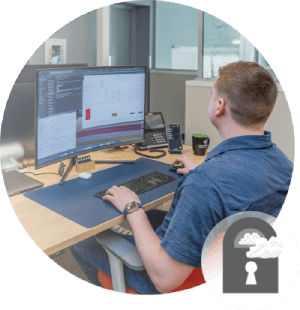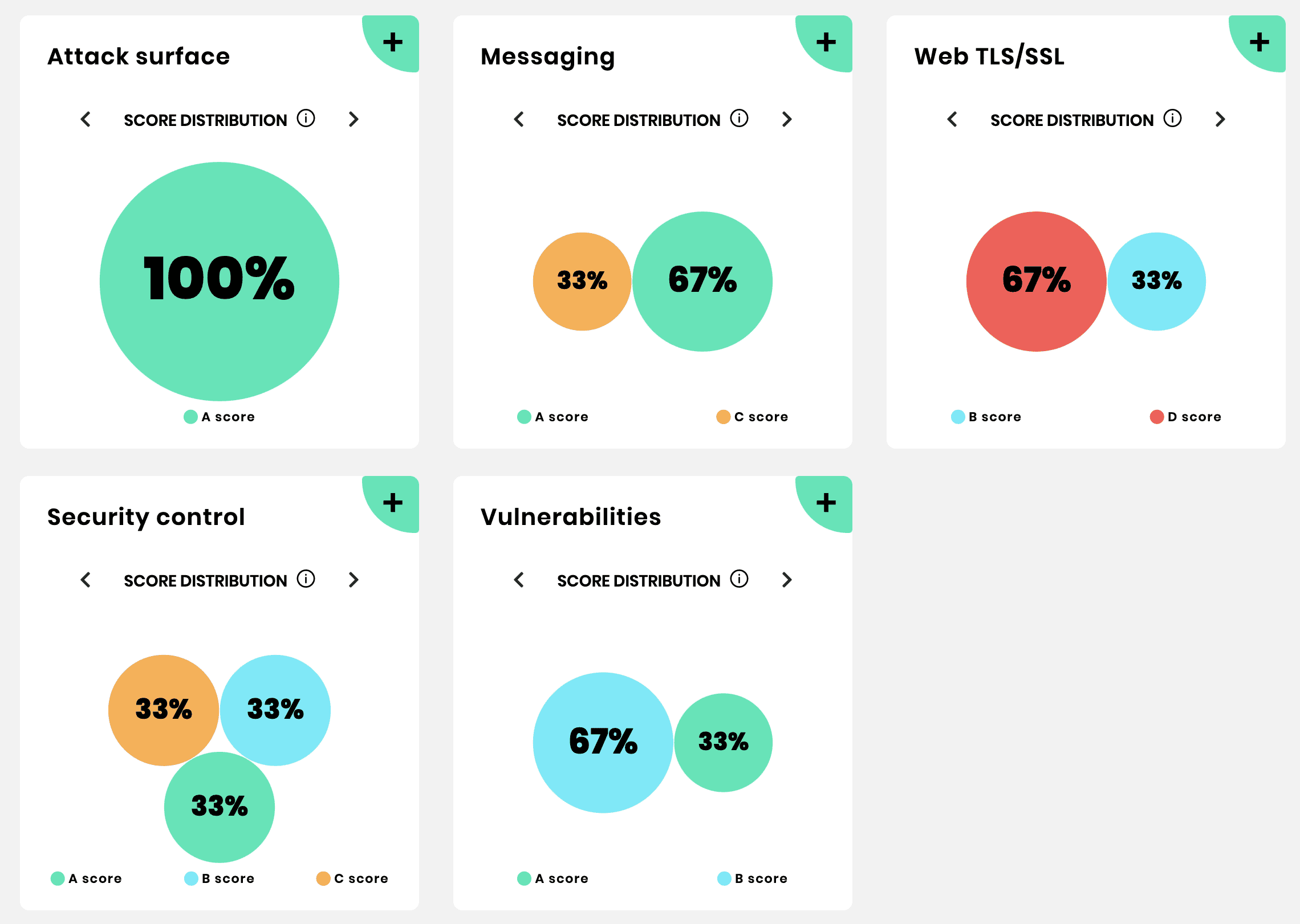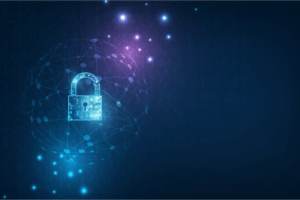The popularity of remote work, telecommuting, work from home, work from anywhere, whatever term you want to use, continues to gain momentum. According to a survey conducted by Enterprise Technology Research (ETR), the percentage of workers permanently working from home is expected to double in 2021.
With so many employees working from so many different locations, many businesses are finding it increasingly difficult to keep their critical data safe from cyberattacks without the usual security measures offered by an office environment or IT team.
Since remote work can be performed in a variety of ways, here are eight common sense tips that can help your employees stay safe and secure. If your business is experiencing challenges with cybersecurity risks, you might also want to reach out to an experienced managed services provider (MSP) like Verdant TCS to implement a multilayered approach to your cybersecurity strategy.
Tip #1: Don’t Use Your Work Computer for Personal Business
You shouldn’t use your work computer for personal stuff like emails, social media, or online shopping. You also don’t want to connect your work computer to your home’s wireless network (Ex: SSID: Home). Your home network is not going to be secure enough to adequately prevent malware attacks to work devices. Home networks are not patched like business networks, and that can put you at risk.
Instead, create a separate network using the WPA2 Enterprise option (Ex: SSID: Work) or have your IT team deploy SD-WAN endpoint firewalls with wireless capabilities that will separate the home’s less–secure network and the business network your work computer attaches to. At a bare minimum, use your company’s virtual private network (VPN) client and make sure local home network traffic is blocked.
Tip #2: Avoid Public Wi-Fi for Work Activities
Remote work doesn’t necessarily mean you’re always conducting business from home. If you frequently travel or simply like to work from your favorite coffee shop, then you are already familiar public Wi–Fi networks. Unfortunately, accessing the internet with a public Wi–Fi connection leaves your work data vulnerable.
A better option is providing your employees with cellular solutions for remote Wi-Fi access that use corporate VPN clients to securely connect them to business tools like email, file servers, web pages, and more. Even if these services are in the cloud, free public Wi-Fi is not secure and often is a hotbed for malware and credential harvesting schemes. At a minimum, you should always deploy on corporate VPN clients and always block local LAN traffic.
Tip #3: Make Sure Your Home Network Is Properly Protected
If you are working from home, you need to make sure your own Wi–Fi setup is as secure as possible — especially if you have family members, roommates, and guests trying to connect to the same network. Most home networks only use the WPA2 Personal option, but you should be using WPA2 Enterprise with radius authentication to give yourself a private SSID that can be used for business and keep your personal traffic separate from work items.
If you have any high-risk users, you also could use SD-WAN technology to securely enforce business–grade security with remote workers. This solution offers you a better performance than traditional VPNs, while also supplying better security. In other words, it’s a win/win.
Tip #4: Confidently Send Emails Using Encryption
There is always going to be inherent risk associated with sending emails containing sensitive information or data. If you’re going to use a laptop for working remotely, make sure it’s encrypted with tools such as Proofpoint, Zix Email Encrypt, or Microsoft Advanced Threat Protection. That way, you can set up rules to automatically encrypt emails if sensitive information is included, which will help take user error out of the equation. It is also a good idea to encrypt your data at rest with a tool like Microsoft BitLocker to further protect your device.
Even if your email is intercepted by a hacker, encryption will ensure that confidential information remains confidential.
RELATED ARTICLE: What Does the Recent SolarWinds Hack Mean for Your Business?
Tip #5: A Strong Antivirus Platform Is Important, Even in 2021
Cybercriminals are constantly creating new viruses, phishing scams, and malware attacks designed to wreak havoc on your business. A strong antivirus platform like CrowdStrike can help prevent cyberattacks from occurring — or at least allow you to react quickly if there is a data breach.
You also will want to choose an antivirus system that uses machine learning and artificial intelligence (AI) to provide real-time protection against zero-day exploits, which is a term for recently discovered hacker vulnerabilities. A new class of anti-virus software is Endpoint Detection and Response (EDR), which is an integrated security solution that combines real-time continuous monitoring and data collection with rules-based automated response and analysis capabilities.
Even if you think you’re being careful, a strong antivirus program will provide another layer of data security to protect your business. It takes a lot more time and money to fix an infected or compromised device than it does to protect it.
Tip #6: Set Up Multifactor Authentication for Added Security
Multi-factor authentication (the process or requiring two or more verification items to gain access to accounts) is another effective tool in multilayered security strategies. Rather than needing only a username and password to access your VPN, for example, you might need to include a code generated by an app on your phone to prove your identity.
Even if some employees complain that this extra step can be a pain, multi-factor authentication is extremely effective. According to Google, multi-factor authentication blocked up to 100% of automated bots and 99% of bulk phishing attacks. And again, it is far more painful to respond to breaches and hacks than it is to prevent them.
Tip #7: Leverage the Cloud to Provide Centralized Storage Options
Unfortunately, some employees might develop bad habits or informal practices while working remotely. One of the benefits that comes with cloud computing platforms is a centralized storage platform that provides access to sensitive data that is both reliable and secure. Cloud computing gives you the power to establish firewalls, security controls, and procedures that are appropriate for your employees.
This also provides an effective way to back–up and recover your data if it is accidentally lost or deleted. Additionally, you can implement a proactive disaster recovery plan that allows you to quickly react to minimize any downtime or negative effects if a cybersecurity incident occurs.
Common solutions include Microsoft SharePoint, Microsoft OneDrive, Microsoft Advanced Threat Protection, JumpCloud Conditional Access and Single Sign-On. These are powerful tools that make it easy for your employees to work while also giving you centralized control of your data in a secure manner. This allows you to easily facility the separation of duty reviews, access level audits, and e-discovery risk exposure audits.
Tip #8: Physical Security Is Important Even While Working Remotely
Protecting your data also means protecting your physical work devices — including your laptop, phone, USBs, and more. Depending on the sensitive data stored inside, a stolen laptop can cost you more than the price of a new computer.
The first step in work from home cybersecurity is keeping your endpoints secure. In other words, don’t leave your computer in the car overnight. Don’t leave your devices unattended in public. Don’t leave your doors at home unlocked. Don’t store credit card information or important personal details on your desktop.
You also should consider investing in mobile device management software that allows you to monitor devices for physical security breaches, encrypts data, and offers remote wiping if any equipment ever is stolen. There is a reason Verdant TCS includes this in our MSP packages. It’s a key part of a proper multi-layered security strategy.
Verdant TCS Can Help Your Remote Employees Stay Secure
You can never be too diligent when it comes to your business’ security policies. Every second counts when you experience a cyberattack. If you are experiencing issues with security vulnerabilities or cyber threats, reach out to an experienced MSP like Verdant TCS right away.
Verdant TCS was founded to help you plan, implement, monitor, and support proactive cybersecurity strategies for your business. Our experienced team of cybersecurity experts can work with you to find an efficient and intelligent IT solution, like Verdant Grove, that can reduce your costs and help your business enjoy the peace of mind that your data is protected.
To learn how Verdant TCS can help your business with proactive and multilayered security solutions, please call 616-210-1760 or complete this brief form.
References
Chavez-Dreyfuss, G. (2020, October 22). Reuters. Permanently remote workers seen doubling in 2021 due to pandemic productivity – survey. Retrieved from: https://www.reuters.com/article/uk-health-coronavirus-technology/permanently-remote-workers-seen-doubling-in-2021-due-to-pandemic-productivity-survey-idUKKBN2772P8?edition-redirect=uk
Thomas, K. & Moscicki, A. (2019, May 17.) Google. New research: How effective is basic account hygiene at preventing hijacking. Retrieved from: https://security.googleblog.com/2019/05/new-research-how-effective-is-basic.html






